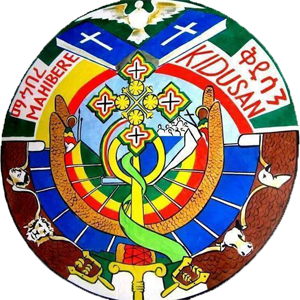About Mahibere Kidusan
Name
The association was named Mahibre Kidusan (an association in the name of Saints) Saints would be commemorated in that they abounded the secular world and sacrificed their lives to the orthodox belief for whom the prophets prophesized and apostles evangelized.
History
In 1977 E.C (Ethiopian Calendar) few students of higher education initiated the youth in the compass to become members of Sunday school and know the teachings of the churches. Later, this effort had been strengthened by students trained in the Zeaway Hamere Berehan St.Gebreil Clergy Training Monastery by the Then Arch Bishop of Shewa Abune Gorgorious II.
The movements continued in Bilatie military camp that brought all students of higher institutions in the country in 1983 E.C after a year, with the blessing of the church fathers the associations was set up by the name “Mahibre Kidusan” under the Sunday School Department of the Ethiopian Orthodox Tewahedo Church. Since then the associations has been proving spiritual service.
Vision
“Envisioning the Church fulfill its universal leadership role.”
Mission
Fructify and procure an organized, whole, eloquent, moderate, versatile and leader generation who strives in achieving the church’s mission and diligently work for her existence.
Institutional Asset
OBJECTIVES
Stand
The association shall not interfere in administrative affairs of the church and it is free from and political affiliation.
Membership
- Disciples who trained in various training institution of the church and providing ministerial activity.
- Higher institution students attending Sunday in their respective parishes.
- Member of Sunday school or/and parish that provide spiritual service after graduating from higher institution.
- The laity who support the objective of the association with their knowledge, money and labor.
Structure
Mahiber Kidusan is set under the Sunday School department of the Ethiopian Orthodox Church. It provides spiritual services by its sub centers in the dioceses all over the country and in the Diaspora.


“Come, let Us go down and there confuse their language” (Genesis 11:7)
The day which God scattered the of tower of babel is celebrated in Our Holy Church every year on Tir 7 (January 15).
Feast of Circumcision of Lord Jesus Christ
Holy church celebrates the commemoration of the circumcision of the Lord Christ, to Whom is the glory on Tir 6 (January 14). God had ordained the law of circumcision as a sign that His people would become a particular people over all others. This was that every male of the seed of Abraham be circumcised on the eighth day of his birth. God put every soul that did not obey this law under judgement.
“Look to The East” (Divine Liturgy)
The word ‘East’ has religious meanings accord Holy Churches education. To begin with, Holy Mother Saint Mary and Holy Church is symbolized by east. “Originally altars were located at the east end of churches because it is there where the sun rises, symbolizing Christ as the “Sun of righteousness who sends His illuminating rays to light our souls.” (Dictionary of Church terms by Father Tadros Yacoub Malaty page 42)
“Do not be afraid, for behold, I bring you good tidings of great joy” (Luke 2:10)
Dear Children of God, how are you? How are you welcoming the feast of Lord Jesus Christ’s Birth day? We hope you are getting ready to celebrate it with your family, neighbors and friends. Though it is the time for holiday, you must also be prepared for the mid semester exam and study hard. You shall read more and understand well the courses and notes that your teacher taught you. We hope you do well in your exams and pass all of them.
Dear Children, as education is practical knowledge, you have to make use of what your teacher teaches you every day in school to be a good student, child and citizen. If so, it will help you to be good for others and make God happy. You will become generous, kind, intelligent and have love for people. Good children! Today we will tell you the story of “The Birth day of Lord Jesus Christ.”
Feast of Abune Tekele Himanot
On April Megabit 24 (Abune 2) Tekele Haimnaot was conceived and born on Tahisas 24 (January 2). He then praise God saying, “The One Father is Holy, the one Son is Holy, the one Spirit is Holy.”
Priest Tsegazeab and Egizihareya named their son “Fisha Tsion” to mean “The happiness of Zhion.” They raised blessed child with church education and under the law of God. Then one day, Lord and Savior Jesus Christ came to him and chose him to preach holy gospel, as an apostle. He also changed his name to “Tekele Haimanot” which means “The plant of religion, The plant of holy Father, plant of Holy Son, Plant of holy spirit.”